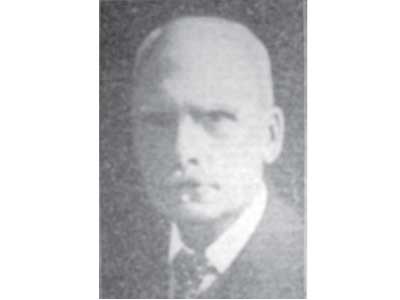
David Roberts (1859-1928)
DAVID Roberts is perhaps one of the least known pioneers of engineering and yet was one of the most important.
As the Chief Engineer, and later as the Managing Director of Richard Hornsby & Sons Ltd, of Grantham, his design concepts promised world leadership at the turn of the century.
The machines he designed and built were at least a decade ahead of any other development being worked on in the world at that time.
Born at Chester, started work with Hydraulic Engineering Company Ltd when he was 14, staying with them for 15 years, living in England and overseas.
He then worked for Sir W G Armstrong Miychell & Co Ltd (later Vickers Armstrong) Newcastle upon Tyne, staying for eight years and for two-and-a-half years he was manager of their Italian works, near Naples.
He joined Hornsby’s in 1895 as Chief Engineer, and Works Manager. He became General Manager, then Managing Director in 1904 until 1918.
While at Hornsbys, he saw their manufacturing area expand from 16 acres to 80 acres. He retired in 1920.
During his era, the works grew from 16.5 acres to 80 acres.
He was also Vice-President of Grantham Liberal Club, London Road.
The strength was his engineering capability and the weakness which frustrated the commercial development of his ideas was the weakness in sales and marketing.
This weakness resulted in the decline of Richard Hornsby as a company and the abandonment of their brilliant pioneering work on the crawler tractor.
Under him the company produced the world’s first diesel tractors – but built only three of them.
Unfortunately the firm’s marketing was not always able to match up to the situation either.
Advertising seems to have been a particularly weak point with Hornsby’s.
They neither advertised as frequently nor as effectively as their competitors. Unlike their engineering products, the Hornsby’s advertisements tended to be unimaginative, and many good opportunities for promotion were missed.’
The Roberts saga is especially disappointing as his designs and his prototype machines showed great promise, which if the need for marketing had been identified, they could have taken advantage of enormous markets which within five or six years were identified by American pioneers led by Benjamin Holt.




Leave a Reply
You must be logged in to post a comment.